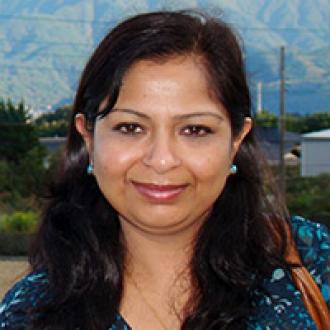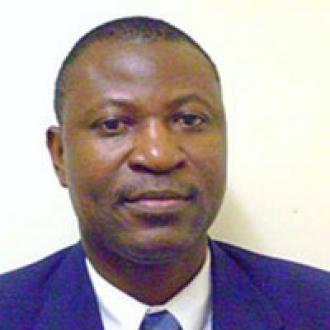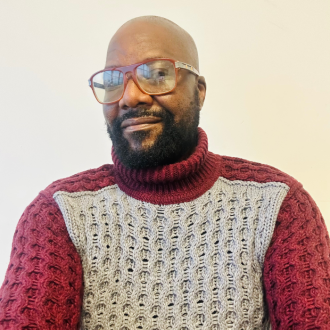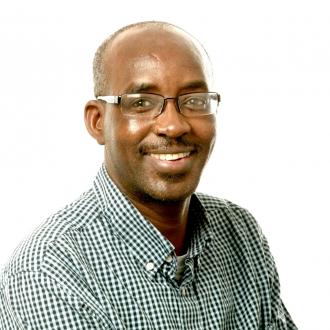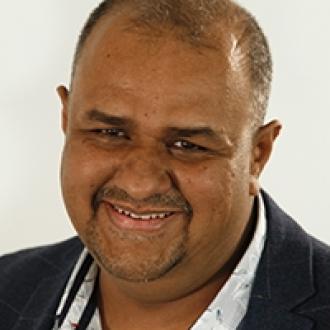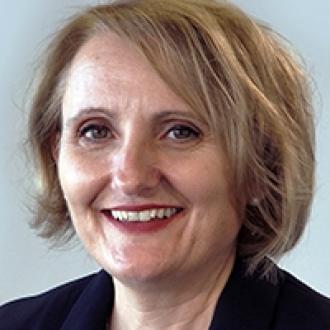- Research
Global Health PhD
Overview
On our PhD in Global Health course, you will learn to create, integrate, and translate global population-based knowledge to reduce the societal burden of diseases and disability. Through excellence in research, education and knowledge transfer you will be able to identify threats to global health, assess the health status of diverse populations and to plan and implement strategies to improve population health status.
Our academics have extensive professional experience within a vast array of healthcare topics and are at hand to support you. Your topic could fall into any of the wider global health subject areas, including:
- global health (life expectancy and quality of life)
- health system / healthcare workforce
- public health nutrition
- ageing population (care for the elderly / hospice / palliative care)
- dementia care
- antibiotic resistance
- demography (maternal / child health issues)
- healthcare education
- healthcare policy and management / social policy for translational medicine
- infection prevention and control
- bioinformatics
- communicable disease prevention and management
- non-communicable disease
- mental health
- environmental health
- patient centric care
- global warming and climate change
- threat of a global influenza pandemic
- fragile and vulnerable settings (regions affected by drought / conflict)
- Ebola and high-threat pathogens
- weak primary care
- Public-Private Partnerships (PPP)
- equity in health care
- universal access to health care
- Quality of Care (QoC)
- unsafe health products
- capitalising technological advancement in health (digital health / mHealth / eHealth)
- sanitation.
See a list of potential PhD supervisors and read about their expertise, in the 'Supervisors' section lower down the page.

Select your desired study option, then pick a start date to see relevant course information:
Start date:
If your desired start date is not available, try selecting a different study option.
Why study Global Health with us?


What our students say…
The staff members that I encountered were warm, welcoming and supportive of my studies. The relatively small size of the University’s postgraduate school created a close family/communal environment for both staff and students. This provided a good support system as I could quickly grow acquainted with the postgraduate team and other Doctoral research candidates.


European Institute for Person-Centred Health and Social Care
The Centre looks at newer models of care that are personalised, integrated and contextualise for chronically ill patients.

World-leading Research
The University of West London has been recognised by the Government's Research Excellence Framework (REF) for its exceptional research work.

Course detail
You will have a supervisory team made up of a Director of Studies with expertise in your chosen field, a further supervisor and, where appropriate, an additional adviser. Your research will be judged through the presentation of a thesis or artefact and a viva voce for academic assessment. We provide a stimulating and supportive environment where you will benefit from:
- peer feedback and discussion
- a series of master-classes and lectures from industry figures
- support by a supervisor and second supervisor suited to your project.
About PhD study
This course is available for you to study either on a full-time or part-time basis and you have the flexibility to switch should you need to.
A PhD is founded on independent research. You will undertake a systematic and in-depth exploration of your chosen topic to produce a substantial body of knowledge and make an original and important contribution to the subject area.
The support provided by your supervisory team will be vital to your student experience and scholarly advancement. You and your supervisors will have regular one-to-one meetings which will provide you with opportunities to develop your research topic and discuss your progress.
College of Nursing, Midwifery and Healthcare Research Centres
Our College is closely involved with two centres:
The The Richard Wells Research Centre conducts primary research, undertaking development and review through its work as an internationally accredited centre for evidence-based practice.
Our European Institute for Person-Centred Health and Social Care looks at newer models of care that are personalised, integrated and contextualise for chronically ill patients who need more comprehensive forms of assistance.
Our research record
View our academic journal 'New Vistas' to see the work of students and academics who are making an impact both locally and globally through their research findings.
Location
Based in the heart of Ealing, west London, you can make use of the excellent transport links to travel to the the capital or further afield - ideal for attending research meetings and networking events.
Got a question?
If you would like guidance or more information about studying for a research degree, you can contact Professor Heather Loveday.
To enable you to enhance your professional profile, we support you throughout your research degree by:
- providing research seminars
- organising doctoral events and activities
- facilitating networking and collaboration opportunities
- encouraging and supporting publication and dissemination of your research
- offering opportunities to gain teaching expertise and experience.
We provide structured research training, expert supervision, and an environment where you can discuss your research with other PhD students and researchers.
We run seminars in research methods from the Graduate Centre, as well as an ongoing series of events and activities organised by Schools and Colleges. Specialist help with academic English for students for whom English is not their first language is available.
Rami Ranger House (Postgraduate Student Centre)
Postgraduate and International Student Centre is a new focal point for the university’s postgraduate and international students, providing dedicated space for social and learning interaction.
This building, which is three storeys high, offers spaces for collaborative working, socialising, supervision and mentoring on the ground floor. The first floor has work spaces for the postgraduate support teams to use while the second floor provides guest accommodation for visiting scholars.
The Paul Hamlyn Library
The Paul Hamlyn Library provides an extensive range of books, journals and digital resources, PC and Mac workstations and a variety of study spaces. Find out more about what the Paul Hamlyn Library has to offer.
We contribute to national and international initiatives and promote collaboration and networking opportunities. We also encourage and support you to publish and disseminate your research in academic journals and via presenting papers at conferences.
We run an annual conference for doctoral students, where you are encouraged to present a paper about your research. As well as being an opportunity to discuss your work with other students, the conference is a chance to gain valuable experience in presenting your research and participating in open discussions with academic peers.
You will also find other opportunities such as postgraduate student seminars and forums within your specific subject area.
Community
Once you start a PhD course at UWL, you become part of our research community. You will have access to a postgraduate common room, located at our Ealing campus on St Mary’s Road, where you will meet fellow researchers from other subject disciplines offering scope for collaborations or simply to discuss ideas, allowing you to be part of a vibrant research environment.
Entry requirements
The minimum entry requirements for a research degree are:
- a good first degree (First Class or Upper Second Class), or equivalent qualification in a relevant field
- a Masters Degree (MA, MSc, MBA or MRes) with Merit, or equivalent postgraduate or research experience.
We look for students with:
- dedication
- enthusiasm
- a passion for their chosen subject.
You will also have a well thought through and persuasive proposal.
The minimum entry requirements for a research degree are:
- a good first degree (First Class or Upper Second Class), or equivalent qualification in a relevant field
- a Masters Degree (MA, MSc, MBA or MRes) with Merit, or equivalent postgraduate or research experience.
- Competence in written and spoken English is a pre-requisite for entrance to this programme.
An IELTS (International English Language Testing System) score of 6.5 (with no element under 6.0).
We look for students with:
- dedication
- enthusiasm
- a passion for their chosen subject.
You will also have a well thought through and persuasive proposal.
Fees & funding
Please note:
- Fees for the 2026/27 academic year and onwards may be subject to Government regulation and change.
- Tuition fees are charged for each year of your course. If your course runs for two years or more, you will need to pay the fee for each academic year at the start of that year.
- If your course runs for less than two years, the cost above is for your full course and you will need to pay the full fee upfront.
- If no fee is shown above then the fees for this course are not available yet. Please check again later for updates.
Funding your studies
Funding for postgraduate students usually comes from one or more of a range of key sources:
- research councils
- charities and trust funds, including those funded by the UK government
- higher Education institutions
- overseas governments (international students only)
- employers
- professional and career development loans
- self-funding (including family funds).
Find out more about funding opportunities.
Examples of most of these types of funding are included on the postgraduate studentships website, (with the exception of funding you may be able to obtain from your employer and self-funding).
Bursaries and scholarships
We offer generous bursaries and scholarships to make sure your aspirations are your only limit.
See our PhD scholarships, scholarships and bursaries.
Please note:
- Fees for the 2026/27 academic year and onwards may be subject to Government regulation and change.
- Tuition fees are charged for each year of your course. If your course runs for two years or more, you will need to pay the fee for each academic year at the start of that year.
- If your course runs for less than two years, the cost above is for your full course and you will need to pay the full fee upfront.
- If no fee is shown above then the fees for this course are not available yet. Please check again later for updates.
Funding your studies
For any overseas students, your first port of call should be grant-awarding bodies in your own country (eg The Ministry / Department of Education) and your local (or nearest) office of the British Council.
The British Council manage a small number of international studentship grants in some countries and should be able to tell you what other awards may be available to you - they also produce the Sources of funding for international students guide.
Supervisors
Study & career progression

A PhD degree in Global Health opens up an array of career opportunities both in academia and as a professional within the health sector.
Many students go on to pursue an academic career, following the PhD with postdoctoral study, then a fellowship or lectureship.
After completion of the PhD you can enter governmental departments, UN agencies, NGOs, National Institutes of Health (NIH) or Centers for Disease Control (CDC).
You could pursue a career as a:
- policy analyst
- epidemiologist
- medical analyst
- programme manager and adviser
- health scientist
- public health adviser
- field consultant
- disaster relief support officer.
How to apply

To apply for one of our research courses, click the green 'apply now' link shown below to complete an online application form. You will need to attach the following documentation to your online application form:
- research proposal outline (5000 words maximum)
- CV
- transcript of your highest qualification.
The research proposal outline, or statement of research interests, enables us to assess your suitability for higher degree work including:
- viability of the topic as a research study
- the most appropriate supervisor(s) to be appointed.
Apply for this course
Next steps after making your application
We aim to make a decision on your application as quickly as we can. If we need any more information about your qualifications, we will be in touch.
In the meantime, come and visit us and find out more about what studying at UWL is like. Sign up for an open day or join a campus tour.
Visit us and see for yourself
Talk to our tutors and find out about our courses and facilities at our next open day or join a campus tour.
We're here to help
Any questions about a course or studying at UWL? We're here to help - call us on 0800 036 8888 (option 2, Monday – Friday 10am-4pm) or email us on courses@uwl.ac.uk.

To apply for one of our research courses, click the green 'apply now' link shown below to complete an online application form. You will need to attach the following documentation to your online application form:
- research proposal outline (5000 words maximum)
- CV
- transcript of your highest qualification.
The research proposal outline, or statement of research interests, enables us to assess your suitability for higher degree work including:
- viability of the topic as a research study
- the most appropriate supervisor(s) to be appointed.
Apply for this course
Next steps after making your application
We aim to make a decision on your application as quickly as we can. If we need any more information about your qualifications, we will be in touch.
In the meantime, come and visit us and find out more about what studying at UWL is like. Sign up for an open day or join a campus tour.
Visit us and see for yourself
Talk to our tutors and find out about our courses and facilities at our next open day or join a campus tour.
We're here to help
Any questions about a course or studying at UWL? We're here to help - call us on 0800 036 8888 (option 2, Monday – Friday 10am-4pm) or email us on courses@uwl.ac.uk.

To apply for one of our research courses, click the green 'apply now' link shown below to complete an online application form. You will need to attach the following documentation to your online application form:
- research proposal outline (5000 words maximum)
- CV
- transcript of your highest qualification.
The research proposal outline, or statement of research interests, enables us to assess your suitability for higher degree work including:
- viability of the topic as a research study
- the most appropriate supervisor(s) to be appointed.
Apply for this course
Next steps after making your application
We aim to make a decision on your application as quickly as we can. If we need any more information about your qualifications, we will be in touch.
In the meantime, come and visit us and find out more about what studying at UWL is like. Sign up for an open day or join a campus tour.
Visit us and see for yourself
Talk to our tutors and find out about our courses and facilities at our next open day or join a campus tour.
We're here to help
Any questions about a course or studying at UWL? We're here to help - call us on 0800 036 8888 (option 2, Monday – Friday 10am-4pm) or email us on courses@uwl.ac.uk.

To apply for one of our research courses, click the green 'apply now' link shown below to complete an online application form. You will need to attach the following documentation to your online application form:
- research proposal outline (5000 words maximum)
- CV
- transcript of your highest qualification.
The research proposal outline, or statement of research interests, enables us to assess your suitability for higher degree work including:
- viability of the topic as a research study
- the most appropriate supervisor(s) to be appointed.
Apply for this course
Next steps after making your application
We aim to make a decision on your application as quickly as we can. If we need any more information about your qualifications, we will be in touch.
In the meantime, come and visit us and find out more about what studying at UWL is like. Sign up for an open day or join a campus tour.
Visit us and see for yourself
Talk to our tutors and find out about our courses and facilities at our next open day or join a campus tour.
We're here to help
Any questions about a course or studying at UWL? We're here to help - call us on 0800 036 8888 (option 2, Monday – Friday 10am-4pm) or email us on courses@uwl.ac.uk.

To apply for one of our research courses, click the green 'apply now' link shown below to complete an online application form. You will need to attach the following documentation to your online application form:
- research proposal outline (5000 words maximum)
- CV
- transcript of your highest qualification.
The research proposal outline, or statement of research interests, enables us to assess your suitability for higher degree work including:
- viability of the topic as a research study
- the most appropriate supervisor(s) to be appointed.
Apply for this course
Next steps after making your application
We aim to make a decision on your application as quickly as we can. If we need any more information about your qualifications, we will be in touch.
In the meantime, come and visit us and find out more about what studying at UWL is like. Sign up for an open day or join a campus tour.
Visit us and see for yourself
Talk to our tutors and find out about our courses and facilities at our next open day or join a campus tour.
We're here to help
Any questions about a course or studying at UWL? We're here to help - call us on 0800 036 8888 (option 2, Monday – Friday 10am-4pm) or email us on courses@uwl.ac.uk.

To apply for one of our research courses, click the green 'apply now' link shown below to complete an online application form. You will need to attach the following documentation to your online application form:
- research proposal outline (5000 words maximum)
- CV
- transcript of your highest qualification.
The research proposal outline, or statement of research interests, enables us to assess your suitability for higher degree work including:
- viability of the topic as a research study
- the most appropriate supervisor(s) to be appointed.
Apply for this course
Next steps after making your application
We aim to make a decision on your application as quickly as we can. If we need any more information about your qualifications, we will be in touch.
In the meantime, come and visit us and find out more about what studying at UWL is like. Sign up for an open day or join a campus tour.
Visit us and see for yourself
Talk to our tutors and find out about our courses and facilities at our next open day or join a campus tour.
We're here to help
Any questions about a course or studying at UWL? We're here to help - call us on 0800 036 8888 (option 2, Monday – Friday 10am-4pm) or email us on courses@uwl.ac.uk.

To apply for one of our research courses, click the green 'apply now' link shown below to complete an online application form. You will need to attach the following documentation to your online application form:
- research proposal outline
- CV
- transcript of your highest qualification.
The research proposal outline, or statement of research interests, enables us to assess your suitability for higher degree work including:
- viability of the topic as a research study
- the most appropriate supervisor(s) to be appointed.
Apply for this course
Next steps after making your application
We aim to make a decision on your application as quickly as we can. If we need any more information about your qualifications, we will be in touch.
In the meantime, come and visit us and find out more about what studying at UWL is like. Sign up for an open day or join a campus tour.
Visit us and see for yourself
Talk to our tutors and find out about our courses and facilities at our next open day or join a campus tour.
We're here to help
Any questions about a course or studying at UWL? We're here to help - call us on 0800 036 8888 (option 2, Monday – Friday 10am-4pm) or email us on courses@uwl.ac.uk.

To apply for one of our research courses, click the green 'apply now' link shown below to complete an online application form. You will need to attach the following documentation to your online application form:
- research proposal outline
- CV
- transcript of your highest qualification.
The research proposal outline, or statement of research interests, enables us to assess your suitability for higher degree work including:
- viability of the topic as a research study
- the most appropriate supervisor(s) to be appointed.
Apply for this course
Next steps after making your application
We aim to make a decision on your application as quickly as we can. If we need any more information about your qualifications, we will be in touch.
In the meantime, come and visit us and find out more about what studying at UWL is like. Sign up for an open day or join a campus tour.
Visit us and see for yourself
Talk to our tutors and find out about our courses and facilities at our next open day or join a campus tour.
We're here to help
Any questions about a course or studying at UWL? We're here to help - call us on 0800 036 8888 (option 2, Monday – Friday 10am-4pm) or email us on courses@uwl.ac.uk.

To apply for one of our research courses, click the green 'apply now' link shown below to complete an online application form. You will need to attach the following documentation to your online application form:
- research proposal outline
- CV
- transcript of your highest qualification.
The research proposal outline, or statement of research interests, enables us to assess your suitability for higher degree work including:
- viability of the topic as a research study
- the most appropriate supervisor(s) to be appointed.
Apply for this course
Next steps after making your application
We aim to make a decision on your application as quickly as we can. If we need any more information about your qualifications, we will be in touch.
In the meantime, come and visit us and find out more about what studying at UWL is like. Sign up for an open day or join a campus tour.
Visit us and see for yourself
Talk to our tutors and find out about our courses and facilities at our next open day or join a campus tour.
We're here to help
Any questions about a course or studying at UWL? We're here to help - call us on 0800 036 8888 (option 2, Monday – Friday 10am-4pm) or email us on courses@uwl.ac.uk.

To apply for one of our research courses, click the green 'apply now' link shown below to complete an online application form. You will need to attach the following documentation to your online application form:
- research proposal outline
- CV
- transcript of your highest qualification.
The research proposal outline, or statement of research interests, enables us to assess your suitability for higher degree work including:
- viability of the topic as a research study
- the most appropriate supervisor(s) to be appointed.
Apply for this course
Next steps after making your application
We aim to make a decision on your application as quickly as we can. If we need any more information about your qualifications, we will be in touch.
In the meantime, come and visit us and find out more about what studying at UWL is like. Sign up for an open day or join a campus tour.
Visit us and see for yourself
Talk to our tutors and find out about our courses and facilities at our next open day or join a campus tour.
We're here to help
Any questions about a course or studying at UWL? We're here to help - call us on 0800 036 8888 (option 2, Monday – Friday 10am-4pm) or email us on courses@uwl.ac.uk.

To apply for one of our research courses, click the green 'apply now' link shown below to complete an online application form. You will need to attach the following documentation to your online application form:
- research proposal outline
- CV
- transcript of your highest qualification.
The research proposal outline, or statement of research interests, enables us to assess your suitability for higher degree work including:
- viability of the topic as a research study
- the most appropriate supervisor(s) to be appointed.
Apply for this course
Next steps after making your application
We aim to make a decision on your application as quickly as we can. If we need any more information about your qualifications, we will be in touch.
In the meantime, come and visit us and find out more about what studying at UWL is like. Sign up for an open day or join a campus tour.
Visit us and see for yourself
Talk to our tutors and find out about our courses and facilities at our next open day or join a campus tour.
We're here to help
Any questions about a course or studying at UWL? We're here to help - call us on 0800 036 8888 (option 2, Monday – Friday 10am-4pm) or email us on courses@uwl.ac.uk.

To apply for one of our research courses, click the green 'apply now' link shown below to complete an online application form. You will need to attach the following documentation to your online application form:
- research proposal outline
- CV
- transcript of your highest qualification.
The research proposal outline, or statement of research interests, enables us to assess your suitability for higher degree work including:
- viability of the topic as a research study
- the most appropriate supervisor(s) to be appointed.
Apply for this course
Next steps after making your application
We aim to make a decision on your application as quickly as we can. If we need any more information about your qualifications, we will be in touch.
In the meantime, come and visit us and find out more about what studying at UWL is like. Sign up for an open day or join a campus tour.
Visit us and see for yourself
Talk to our tutors and find out about our courses and facilities at our next open day or join a campus tour.
We're here to help
Any questions about a course or studying at UWL? We're here to help - call us on 0800 036 8888 (option 2, Monday – Friday 10am-4pm) or email us on courses@uwl.ac.uk.
Search for courses
Student life at UWL
Important notes for applicants
Disclaimer
*Modern universities - defined as higher education institutions that were granted university status in, and subsequent to, 1992.
**The National Student Survey 2023 and 2024 - Average of answers to all questions by registered student population. Excludes specialist institutions.
Testimonials - our students or former students provided all of our testimonials - often a student from the course but sometimes another student. For example, the testimonial often comes from another UWL student when the course is new.
Optional modules - where optional modules are offered they will run subject to staff availability and viable student numbers opting to take the module.
Videos - all videos on our course pages were accurate at the time of filming. In some cases a new Course Leader has joined the University since the video was filmed.
Availability of placements - if you choose a course with placement/internship route we would like to advise you that if a placement/internship opportunity does not arise when you are expected to undertake the placement then the University will automatically transfer you to the non-internship route, this is to ensure you are still successful in being awarded a degree.

